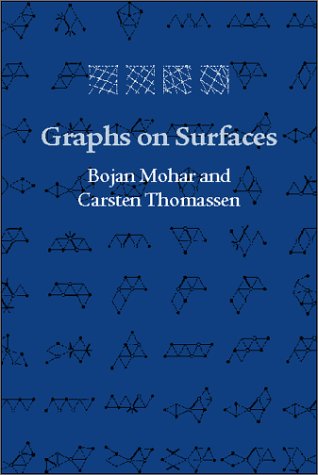

Most ebook files are in PDF format, so you can easily read them using various software such as Foxit Reader or directly on the Google Chrome browser.
Some ebook files are released by publishers in other formats such as .awz, .mobi, .epub, .fb2, etc. You may need to install specific software to read these formats on mobile/PC, such as Calibre.
Please read the tutorial at this link: https://ebookbell.com/faq
We offer FREE conversion to the popular formats you request; however, this may take some time. Therefore, right after payment, please email us, and we will try to provide the service as quickly as possible.
For some exceptional file formats or broken links (if any), please refrain from opening any disputes. Instead, email us first, and we will try to assist within a maximum of 6 hours.
EbookBell Team

4.0
76 reviewsGraph theory is one of the fastest growing branches of mathematics. Until recently, it was regarded as a branch of combinatorics and was best known by the famous four-color theorem stating that any map can be colored using only four colors such that no two bordering countries have the same color. Now graph theory is an area of its own with many deep results and beautiful open problems. Graph theory has numerous applications in almost every field of science and has attracted new interest because of its relevance to such technological problems as computer and telephone networking and, of course, the internet. In this new book in the Johns Hopkins Studies in the Mathematical Science series, Bojan Mohar and Carsten Thomassen look at a relatively new area of graph theory: that associated with curved surfaces.
Graphs on surfaces form a natural link between discrete and continuous mathematics. The book provides a rigorous and concise introduction to graphs on surfaces and surveys some of the recent developments in this area. Among the basic results discussed are Kuratowski's theorem and other planarity criteria, the Jordan Curve Theorem and some of its extensions, the classification of surfaces, and the Heffter-Edmonds-Ringel rotation principle, which makes it possible to treat graphs on surfaces in a purely combinatorial way. The genus of a graph, contractability of cycles, edge-width, and face-width are treated purely combinatorially, and several results related to these concepts are included. The extension by Robertson and Seymour of Kuratowski's theorem to higher surfaces is discussed in detail, and a shorter proof is presented. The book concludes with a survey of recent developments on coloring graphs on surfaces.